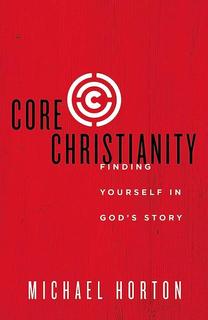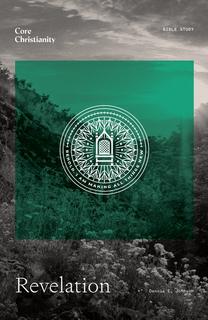In your town, there are probably several or even dozens of Christian churches, each with distinctive teachings. And the Christians you know may disagree with each other’s beliefs. So how can you know a true Christian church when you see one? Which doctrines do Christians need to believe? Are some doctrines “non-core”? That is, which teachings about Christians can we agree to disagree?
Everything in the Bible is inspired by God (2 Tim. 3:16). We can’t pick and choose from God’s word the teachings that really matter and leave the rest up to personal opinion. But we can tolerate some differences. We can distinguish between heresy and less serious errors. We can embrace as brothers and sisters in Christ those whom we believe have misunderstood some teachings in God’s word.
In short, some doctrines are “core Christianity” while others are “non-core.” Churches or Christians who have some non-core teachings wrong but believe the core doctrines are true churches of Christ.
Which Parts of the Bible Matter Most?
All our troubles began with the abuse of God’s word. God told Adam and Eve they could eat the fruit from all the trees in the Garden of Eden except one. If they ate fruit from the tree of the knowledge of good and evil, they would die (Gen. 2:16–17).
But when the serpent spoke to Eve, he immediately called God’s word into question. He asked, “Did God actually say, ‘You shall not eat of any tree in the garden?” (Gen. 3:1). Before contradicting God’s word (Gen. 3:4), Satan first tried to confuse Eve about what God had said.
When Jesus came, Satan tried the same thing. He didn’t tempt Jesus by denying God’s word—he tempted Jesus to sin by quoting Bible verses (Matt. 4:5–6). Satan tried to give God’s word his own meaning for his own purposes.
So how did Jesus resist this temptation? Did he shrug his shoulders and say, “Well, I guess we just have an honest difference of opinion. I’d be arrogant to claim that I’m the one who knows what God’s word really means”?
No. He responded by quoting Scripture. Rather than getting confused, he relied on God’s word toreveal Satan’s abuse of the word. Unlike Adam and Eve, he both remembered what God had said and trusted it. For that reason, he could be a new Adam—and our Savior.
Christ has entrusted his church with the word of God. Nothing else the church does—no teaching, service, or community it provides—means anything if that word isn’t preached. For that reason, it’s not enough for a church to call itself “Bible-believing.” It needs to be Bible-teaching. It needs to know what the Bible actually says. It needs to study God’s word with the utmost care and with dependence on the Holy Spirit, who guides the church into “all the truth” (John 16:13).
And that means the church must preach all of God’s word, and not just the parts we like best or seem most practical or teach things most people can agree with.
But does that mean it’s on you to find the one perfect church that gets everything right? And once you’ve found it, should you then view every other church as false?
What Must Christ’s Church Teach?
From its very beginning, the church has contended with those who “twist” the Scriptures (2 Pet. 3:16). False teachers tried to tear the freshly planted apostolic churches out of the ground. These false teachers weren’t atheists—they usually believed in God, believed in Jesus, and appealed to the authority of God’s word. But what they believed about God, Jesus, and the Bible was false. The apostle Paul said they “distort the gospel of Christ” (Gal. 1:7).
Therefore, the church needed to distinguish between unacceptable errors—later called heresies—and errors that could be tolerated. Preaching heresy makes someone an enemy of the gospel rather than a confused Christian sheep. For example, the apostle John said, “For many deceivers have gone out into the world, those who do not confess the coming of Jesus Christ in the flesh. Such a one is the deceiver and the antichrist” (2 John 1:7). Jesus wasn’t just a spirit. He was a true man—incarnate—and to deny this, John says, makes someone an enemy of Christ.
After the apostles died, the church continued to fight heresy and tried to keep its teachings pure. Summaries of biblical teaching, such as the Apostles’ Creed and Nicene Creed, clarified many essential Christian doctrines. For example, all of the following are core doctrines stated in the creeds:
- God is one God in three persons: the Father, the Son, and the Holy Spirit (the Trinity).
- God created everything good, including human beings, but the first humans disobeyed God and brought sin into the world.
- Jesus Christ, born to a Jewish virgin, is both the eternal Son of God and a true man.
- Through his crucifixion and bodily resurrection, Jesus brought us forgiveness of sins and eternal life.
- Jesus will return one day to judge the world.
Christians can and must distinguish true churches that hold these beliefs from false churches that deny any of them. A church can claim to be Christian but still be “a synagogue of Satan” (Rev. 3:9). A true church teaches the truth about Christ and the gospel, administers the sacraments, and exercises church discipline (in other words, it holds people accountable for their lives and doctrine).
But Christ’s church will never be perfect in this world. It’s being built up and purified by Christ, through his Holy Spirit (Eph. 2:22), but it won’t be perfect until Christ returns. Therefore, while we can never turn a blind eye to anything in God’s word, we can see people and churches as Christian even though they believe certain errors. In other words, among true churches of Christ, some are more pure and some are less pure. None are perfect.
So Which Doctrines Are Non-Core?
Errors regarding the following doctrines don’t necessarily lead to a denial of essential truths about Christ and the gospel. For that reason, they’re “non-core” teachings:
- The Sacraments: A church must administer baptism and the Lord’s Supper, but some disagreements about the nature and performance of the sacraments can be tolerated. For example, some Christians baptize infants while others do not.
- Church Government: True churches of Christ disagree about whether the church should be ruled by a bishop, elders, or the congregation. All should agree, though, that Christ rules his church through his word.
- The End of the World: All true churches believe in Christ’s visible return to judge the world, but they disagree in many ways about when and how this will happen.
- Creation: All Christians believe that God created the world out of nothing, made everything good, and made humans in his image. They often disagree, though, on the details of when and how this happened.
- Worship: Some true churches believe the Bible gives clear instructions about the church’s ministry of word and sacrament that churches must follow. Other churches believe that worship is more flexible and open-ended.
- Supernatural gifts: Some churches believe that the supernatural gifts seen in the early church—like speaking in tongues and miraculous healings—remain in the church today. Others believe these gifts were only part of the early, apostolic church.
- Role of Women: Some churches believe that the Bible forbids women holding any church offices or teaching men in any way. Others believe that women can have a wider role.
This isn’t a complete list of non-core doctrines, but it offers examples of common areas of conflict. None of these are “minor issues.” We’re not called to shrug our shoulders and say, “How can we ever know who’s right? Let’s just love each other.” Those who believe that infants should be baptized and those who don’t should both remain firm in their beliefs unless careful study of Scripture leads them to change their convictions. Identifying non-core issues shouldn’t lead to relativism.
But if we agree on the core beliefs about God, Christ, and the gospel, we can be grateful for that common ground and see one another as fellow believers. We can tolerate each other’s errors while also “speaking the truth in love” in an effort to persuade each other of the truth. Together, we can honor the authority of God’s word and all it teaches while recognizing that we won’t ever see perfect purity and unity among Christians in this world.
And we can do all this in the sure hope that one day, when Christ returns, his church will be “holy and without blemish” (Eph. 5:27), perfect in unity, love, and the knowledge of God (1 Cor. 13:12).









